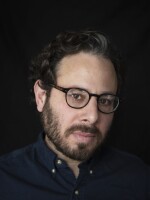MELISSA BLOCK, Host:
Reformers say it's better for kids and taxpayers if they're in local programs and detention centers, as NPR's Joel Rose reports.
JOEL ROSE: By any measure, Christopher Noria(ph) was in trouble. Noria dropped out of high school in Queens. He was arrested for assault twice. It looked like Noria was heading where many of his friends had gone: an upstate detention center.
CHRISTOPHER NORIA: If you go upstate, you honestly don't learn nothing. People are not working with you upstate, you know? You go upstate just to do your time, and you come home, you know what I'm saying? So I believe that if I went upstate, I still would've been doing the same mistakes.
ROSE: But instead of going upstate, Noria spent a few months in detention in New York City. Then a judge sentenced him to an alternative program run by the city. Noria got probation, and his family got counseling.
NORIA: They helped us communicate better. They tell us ways how to not get angry, how to - you know, how to solve your anger problems, what to do when you're mad and stuff like that.
ROSE: Tamara Steckler directs the Legal Aid Society office in New York. She says the majority of the 700 juvenile offenders in the state system come from New York City, while most detention centers are many hours away by car.
TAMARA STECKLER: The ultimate goal for children is to reenter into their homes, into their families, into their schools. And if they're in Buffalo with no parent visits, you know, nowhere near their schools, there's no way the system could reintegrate them easily.
ROSE: Steckler says there's lots of evidence that juvenile offenders who stay closer to their families and communities are less likely to re-offend. New York City probation commissioner Vincent Schiraldi agrees. And he says city-run programs should be a lot cheaper than the $200,000 per year it costs to keep a juvenile offender in a state facility.
VINCENT SCHIRALDI: So we can capture some of that money, then we can really run the kinds of programs that'll turn these kids' lives around, keep the public safe, which is what everybody wants.
ROSE: Mayor Michael Bloomberg is pushing to keep all juvenile offenders in New York City and to treat them using the funds the state would've spent to send them upstate. That idea has been gaining momentum since a scathing Justice Department report shed light on abuse and neglect in the state's juvenile prisons. Many of the state's 1,200 beds are now empty, and Governor Andrew Cuomo has talked about closing detention centers to save money.
ANDREW CUOMO: You have juvenile justice facilities today where we have young people who are receiving help, assistance, program, treatment that has already been proven to be ineffective, recidivism rate in the 90 percentile.
ROSE: CSCA spokesman Steve Madarasz says these kids are in detention for a reason.
STEVE MADARASZ: In many cases, these individuals have committed very serious crimes, and you simply can't leave them unsupervised in a community-based setting where they may be subject to the same influences that got them into trouble in the first place.
ROSE: Madarasz points to the cautionary tale of Renee Greco, who was beaten to death in 2009 by two residents of the group home where she worked. New York City probation commissioner Vincent Schiraldi agrees that public safety is critical.
SCHIRALDI: So before those kids get shipped down here, we'll have the kinds of programs for them that they need to go to. This shouldn't be a jailbreak. This needs to be carefully planned and well-implemented, and that's exactly what New York City intends to do.
ROSE: Joel Rose, NPR News, New York. Transcript provided by NPR, Copyright NPR.



